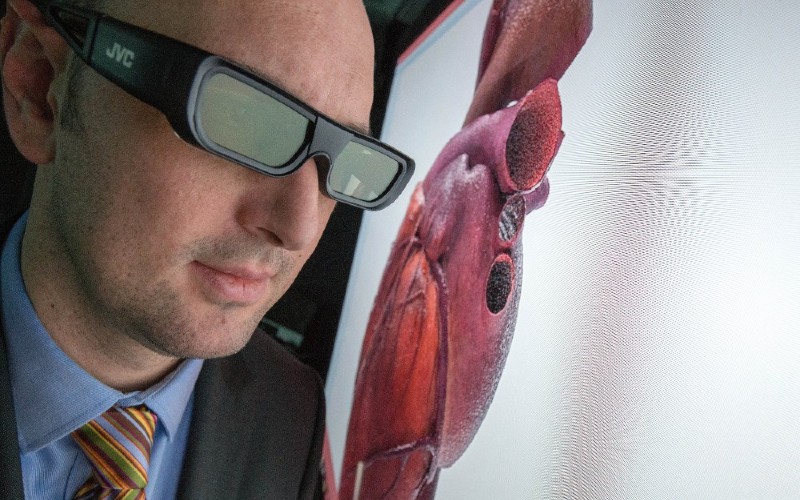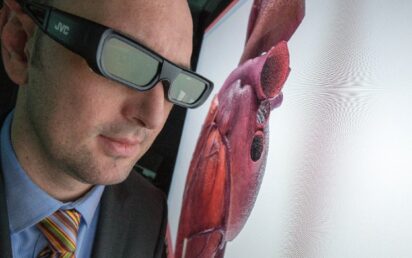Researchers at Glasgow Caledonian University are working on a groundbreaking virtual reality tool that could revolutionise the way nurses, children on kidney dialysis and their families are trained.
The 12-month project, in partnership with the NHS and funded by Kidney Research UK foundation, is exploring the development of a novel VR kidney-dialysis training system that will enable patients, families and medical staff to experience and learn safely the process of dialysis.
The proposed system will particularly support younger patients and their families intending to undertake home-based therapies.
The GCU team is developing a VR application that simulates a dialysis machine, its associated equipment and the complete process, in a virtual patient. This will allow families to undertake training at their own pace in their home, and experience what dialysis may entail. VR can provide feedback such as warning flashing lights, alarms or via vibration.
The application is intended to complement existing training, aiming to reduce the duration of inpatient education delivery and the frequency of outpatient educational visits. It can also simulate potential adverse scenarios to specifically prepare and train users for complications that may occur during the dialysis process, but may not be routinely encountered during real-life training.
https://businesscloud.co.uk/medtech-50/
Professor Vassilis Charissis, who is leading the project at GCU, said: “Dialysis is the process by which a patient is kept alive when their kidneys stop functioning. The duration of such therapy can be years for some patients as they wait for a suitable transplant.
“For younger patients and their families, this is an extremely stressful time as they usually have very limited exposure to dialysis as a process, or to dialysis-experienced peers. This makes informed decision-making difficult and provokes anxieties in families about the choice of a dialysis method, and how they may cope with home-based therapies.
“For patients facing renal replacement, this system could provide a fully interactive and immersive manual, guiding them through their options for treatment, supporting informed consent, training them through the early stages of the procedure if they opt to receive treatment at home, as well as acting as a reminder during the process and when troubleshooting of dialysis equipment is required.”
The project will be developed and trialled in close collaboration with specialised NHS staff under the lead of Dr Ben Reynolds, Consultant Nephrologist, at the Royal Hospital for Sick Children in Glasgow.
By streamlining such a system for the most vulnerable group of patients first, such as children, Professor Charissis says the researchers hope to expand the application for use to the whole population of renal patients.
The tool is able to provide subtitles in different languages and could also allow patients choosing between different dialysis methods to virtually experience all methods and make a more informed choice.
VR

